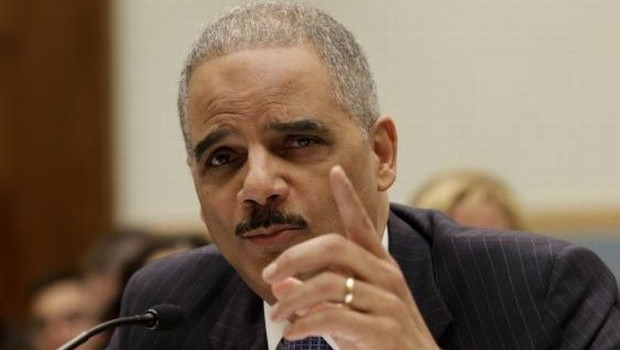
U.S. Attorney General Eric Holder testifies before a House Judiciary Committee hearing on “Oversight of the United States Department of Justice” on Capitol Hill in Washington May 15, 2013. (REUTERS/Yuri Gripas)
In a statement, the department said the search warrant for the reporter’s email account followed all laws and policies and won the independent approval of a federal magistrate judge.
The May 2010 search warrant for a Google email account belonging to James Rosen of Fox News was revealed on Monday by the Washington Post and drew immediate concern from journalists because it described Rosen as a suspected “co-conspirator” in the leak of secret government information.
Fox News Chairman Roger Ailes said in a statement on Thursday that the Obama administration was attempting to intimidate Fox News and its employees.
Rosen reported in June 2009 that U.S. intelligence officials believed North Korea would conduct more nuclear tests in response to U.N. sanctions.
Rosen’s alleged source, former State Department analyst Stephen Kim, is scheduled to go to trial as soon as next year on charges that he violated an anti-espionage law. Rosen was not charged and prosecutors have given no indication they plan to charge him.
Holder told a congressional committee this month that criminal prosecutions of the media have “not fared well in American history.”
Some journalists said they were not reassured.
“The Justice Department’s decision to treat routine news gathering efforts as evidence of criminality is extremely troubling,” said Bruce Brown, executive director of the Reporters Committee for Freedom of the Press, a journalist group.
Prompted by the Rosen search and a separate seizure of Associated Press phone records, President Barack Obama said on Thursday that Holder would begin a review of Justice Department procedures related to media records.
Obama and Holder also said they favor a “shield law” for the media that would protect journalists from compelled disclosure of their records in most cases.
The latest Justice Department statement said the highest levels of the department were involved in the search warrant used in Kim’s case. The process included discussions Holder took part in, according to the statement.
U.S. Magistrate Judge Alan Kay reviewed and issued the search warrant at the department’s request.
Kay ordered the search warrant to be unsealed and put on the public record in November 2011, but it remained hidden from view until this month because of errors by court clerks, Judge Royce Lamberth, the chief judge of U.S. District Court in Washington, said in a memorandum this week.
Justice Department guidelines have for decades required the personal involvement of the attorney general when prosecutors are considering a subpoena to the media. The seizures of media records have occurred most often when the government is investigating a leak of classified information.
Holder told radio network NPR this month that he did not know how many times the Justice Department has obtained journalists’ records since Obama appointed him attorney general in 2009. He said he has refused to approve a few subpoenas that prosecutors wanted.
In the case of the AP’s phone records, Holder ceded authority to his deputy, James Cole, after Holder disqualified himself from an investigation into how the AP acquired secret information about U.S. operations in Yemen.
Holder’s involvement in the search warrant for Rosen’s emails was first reported on Thursday by NBC News.
